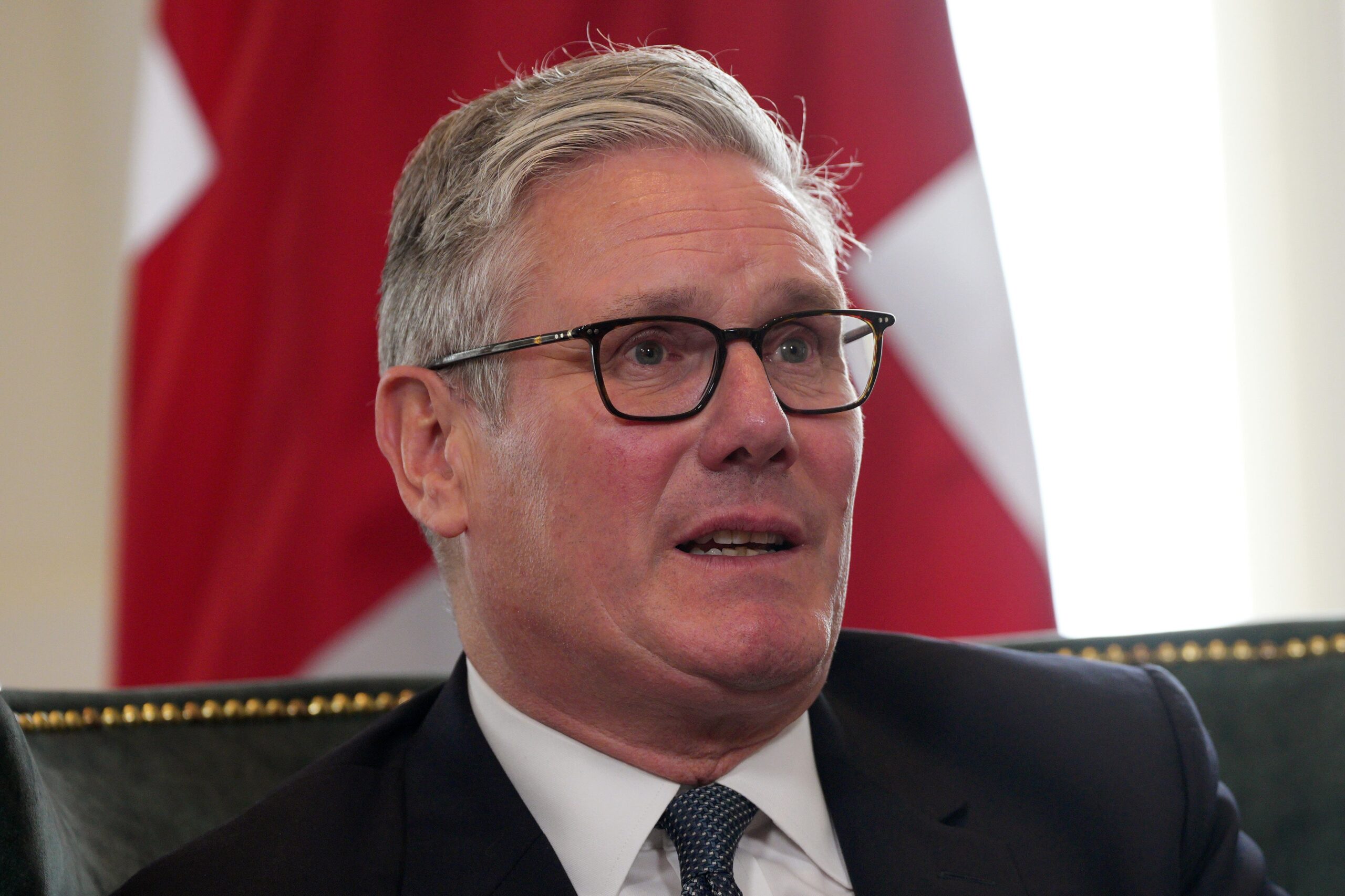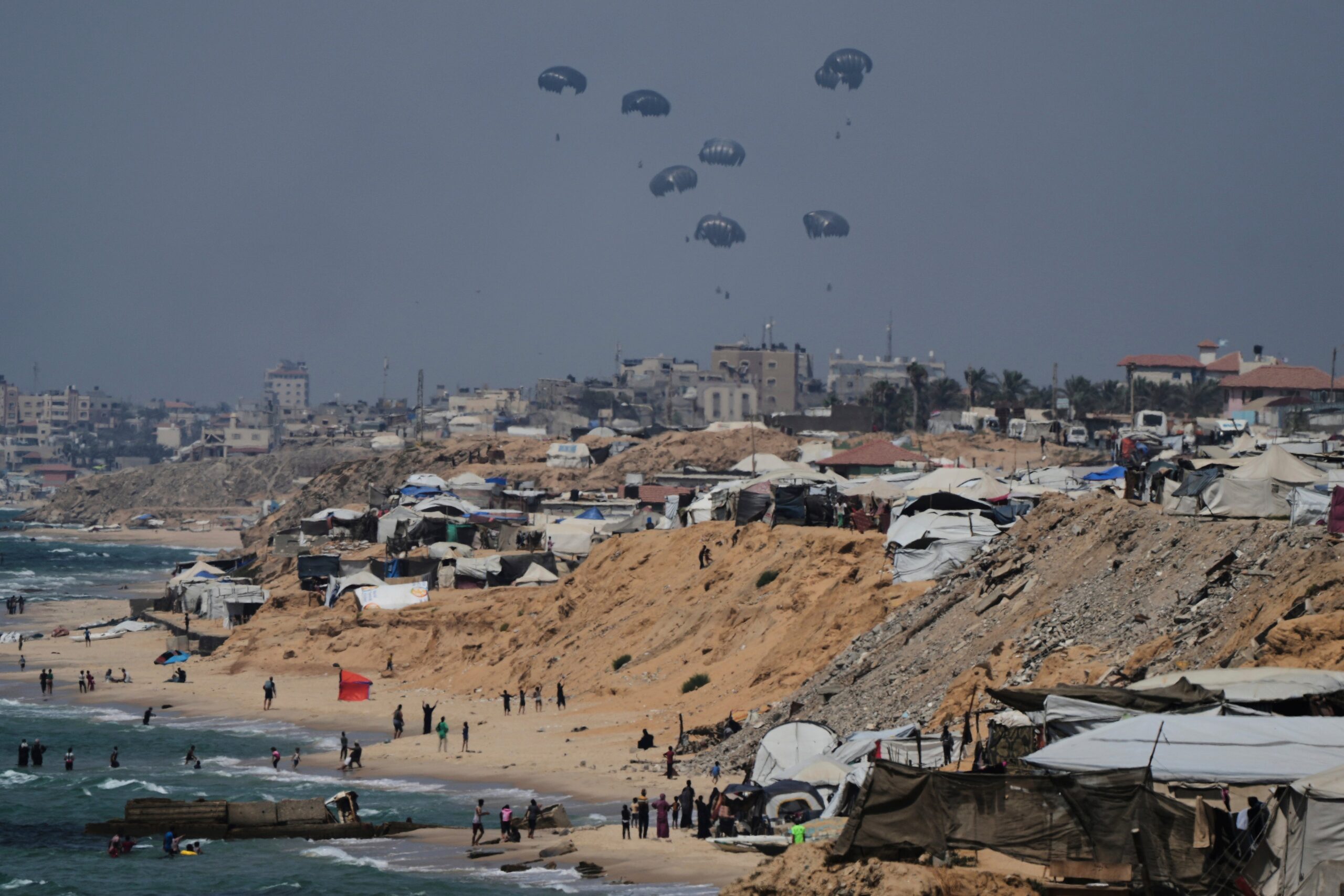Sir Keir Starmer will hold an urgent cabinet meeting this afternoon to set out a plan for “lasting peace” in the Middle East that will pave the way for Labour to recognise a Palestinian state.
The prime minister has called ministers away from their summer break for the meeting, where he will present his plan, which he discussed with Donald Trump in Scotland on Monday.
There have been growing calls from Labour MPs and the public for Sir Keir to do recognise the Palestinian state immediately, with deputy prime minister Angela Rayner and home secretary Yvette Cooper believed to be among ministers who think the government should take the lead on this issue.
Health secretary Wes Streeting has also signalled a desire for hastened action, calling for recognition “while there’s still a state of Palestine left to recognise”. Technology minister Peter Kyle warned on Tuesday that the region is “slipping further and further into despair”.

It is understood that Tuesday’s meeting, being held at 2pm, will take place online, meaning ministers who are away from Downing Street in their constituencies or on holiday will be able to attend virtually.
Sir Keir plans to share details of his strategy with Arab states and other key allies in the coming days.
The prime minister’s official spokesman said: “This week, the prime minister is focused on a pathway to peace to ensure immediate relief for those on the ground, and a sustainable route to a two-state solution.
“We are clear that the recognition of the Palestinian state is a matter of when, not if, but it must be one of the steps on the path to a two-state solution as part of a wider plan that delivers lasting security for both Palestinians and Israelis.”
On Monday, Donald Trump – seen as one of Israel’s strongest supporters – signalled the United States would not object to such a move, giving Sir Keir the green light as pressure mounts on him politically to follow Emmanuel Macron, who last week announced France would do so.
Sir Keir is meanwhile facing calls from a growing number of MPs to recognise a Palestinian state immediately, with more than 250 cross-party MPs having signed a letter calling for ministers to take the step, up from 221 on Friday.
But business secretary Jonathan Reynolds dismissed the idea that there is a split at the top of government over when to recognise a Palestinian state, saying “we all want it to happen”.
It comes after peace talks came to a standstill last week after Washington and Israel recalled negotiating teams from Qatar, with White House special envoy Steve Witkoff blaming Hamas for a “lack of desire” to reach an agreement.

Since then, Israel has promised military pauses in three populated areas of Gaza to allow designated UN convoys of aid to reach desperate Palestinians.
But the UK, which is joining efforts to airdrop aid into the enclave and evacuate children in need of medical assistance, has said that access to supplies must be “urgently” widened.
Aid agencies have welcomed the new measures but said they were not enough to counter the rising hunger in the Palestinian territory.
Sir Keir said that the British public is “revolted” at the scenes of desperation in Gaza as he appeared alongside Mr Trump at his Turnberry golf course on Monday.
“It’s a humanitarian crisis, it’s an absolute catastrophe.
“Nobody wants to see that. I think people in Britain are revolted at seeing what they’re seeing on their screens, so we’ve got to get to that ceasefire.”
Meanwhile, Mr Kyle told Times Radio: “We’ve all seen the images coming out of Gaza. Gaza is slipping further and further into despair.
“Myself, the prime minister, everyone who watches those images, including President Trump, is moved by them. These are horrific images, and there has to be action, and there has to be renewed action.”
The US president hinted at sticking points in US-led negotiations over a peace deal, saying Palestinian militant group Hamas had become “very difficult to deal with” in recent weeks.
He suggested this was because they only held a small remaining number of Israeli hostages.
Sir Keir has likened the plan he is working on with France and Germany to the coalition of the willing, the international effort to support Ukraine towards a lasting peace.
The prime minister’s official spokesman said the plan would build “on the collaboration to date that paves the way to a long-term solution on security in the region”.
